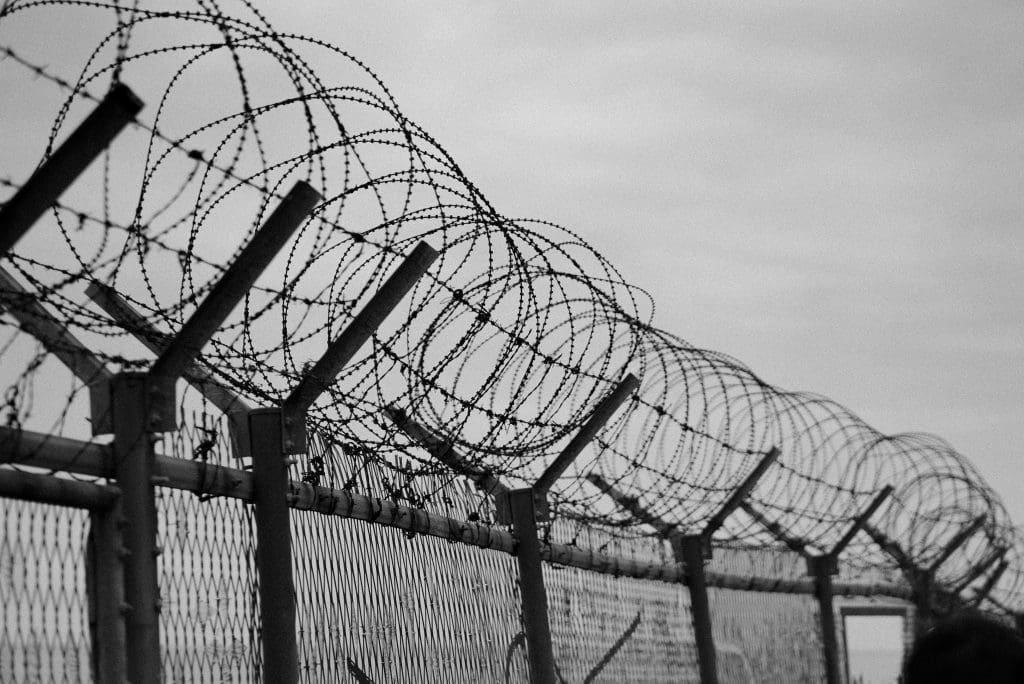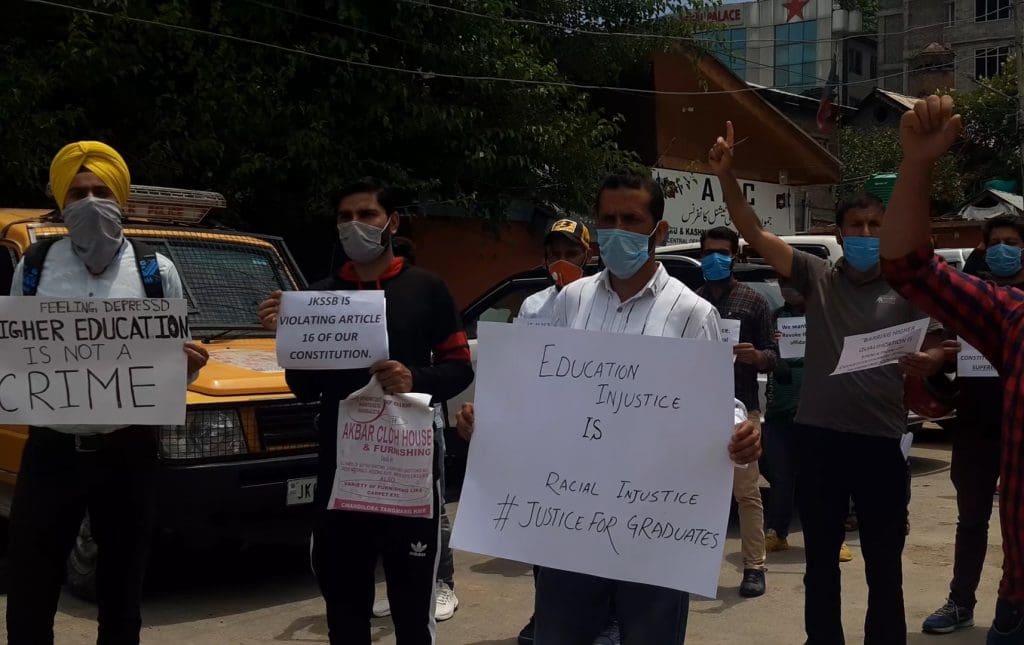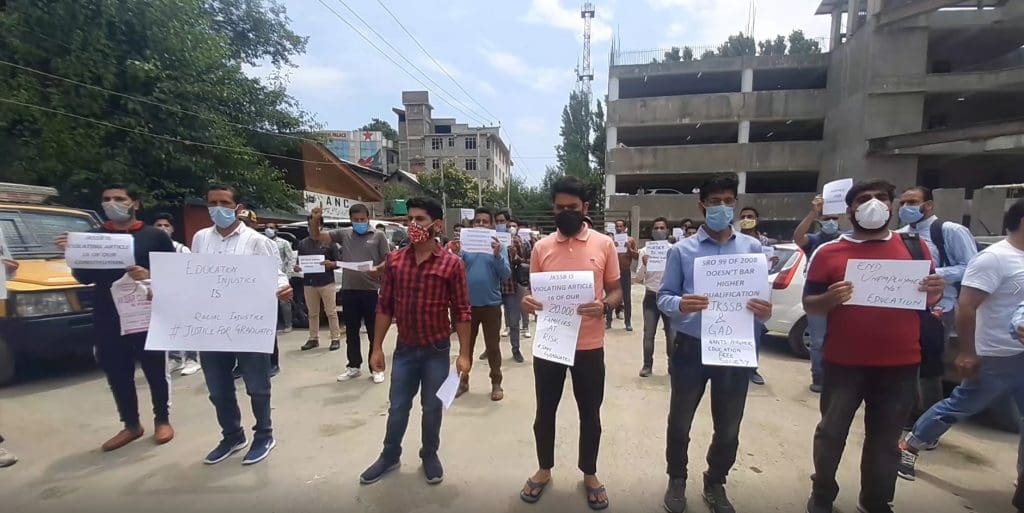
The wooden shelf of 29-year-old, Aadil Ahmad’s room shines with all the trophies he won in school and college. Aadil has a bachelor’s degree in Education and a postgraduate degree in Mathematics, but nowadays, this resident of south Kashmir stays in his darkroom all day and snaps at little things.
Despite all of his achievements, Aadil’s unsuccessful job hunting landed him in anxiety and an expert check-up diagnosed Persistent depressive disorder. “He had taught at a private school for a while but he soon left because of the meagre salary of Rs 4000 a month,” said Abdul Rashid, Aadil’s father.
Rashid, a labourer, spent his hard-earned money on the education of his two sons with the hope of a better tomorrow but both are unemployed. “He used to work hard and was in pursuit of a secure government job. But now, he has lost interest in life and feels hopeless,” Rashid told Maktoob.
“My elder son also has a post-graduation degree in History and I fear for his mental health too.”
Danish, 25, a humanities graduate, works as a construction worker after failing to get a job that matched his qualification. He says that he earns Rs 400 a day but remains mentally disturbed.
“There aren’t enough jobs to employ everyone and I feel like I have wasted all these years of my life studying,” Danish said while carrying a bag of cement on his shoulder.
“I feel worthless.”
In Kashmir, a large number of educated working-age men and women are out of jobs. Unemployment anywhere in the world can be hard, but given the magnitude of economic turbulence and mental health crisis witnessed by Kashmir, especially in the last three years, young minds are finding it difficult to cope with the rising unemployment rates.
“For more than one year, I have come across many new cases of depression among youth. The cases have proportionally increased when compared with previous years,” said, Dr Mansoor, a psychiatrist at District Hospital Anantnag.
“Kashmir is witnessing an onset of new mental health crisis among the young generation.”
In his view, the Kashmiri population has somehow become resilient to mental issues caused by the conflict, but the emotional unpreparedness for the economic fallout is psychologically disparaging for them.
In a scientific survey by MSF (Medecins Sans Frontiers/Doctors without borders) in 2015, 45% of the adult population in Kashmir valley showed symptoms of significant mental distress. The communication blockade post abrogation of Article 370 coupled with the COVID-19 induced lockdowns was reported to have a serious impact on the psyche of Kashmiris.
Dr Ubaid Rasool, a senior resident of psychiatry at the Institute of Mental Health and Neurosciences (IMHANS), Government Medical College, Srinagar states that while the decades of unrest have already pushed Kashmir to the limit in its mental health situation, the diminishing jobs can intensify the crisis among youth.
“Jobless patients with prior mental health illness are less likely to get better,” Dr Ubaid told Maktoob.
“Unemployment leads to stress, which in turn affects a person’s capabilities causing occupational dysfunction, and then the patients fall into a loop,” he added.
The unemployed youth of Kashmir have a higher level of anxiety, depression, loss of behavioural/emotional control and psychological stress, than those who are employed, found a 2020 study.
A glance at the unemployment rates
46.3% of Jammu and Kashmir’s workforce was out of employment, the second-highest in the country, found the Quarterly bulletin of the Ministry of Statistics and Programme Implementation. The data from the Centre for Monitoring India Economy (CMIE) reveals that J&K stands at 2nd place in unemployment for the month of March 2022 with an unemployment rate of 25%, which is more than thrice India’s average unemployment rate of 7.9%. In October 2021, J&K had the highest proportion of unemployment of 22.2% in India.


Even though the unemployment rate witnessed a slight reduction to 15% in the month of December and then to 13.2% in February, it was still double India’s average unemployment rate.
Sleep disturbances and conversion (stress converting to body pain), are among other problems that Dr Yasir Rather, another psychiatrist based in Kashmir has been seeing in his young patients. “I do get a lot of patients who narrate how financial troubles have added to their mental health issues,” he said. “If survival is questioned, it will automatically cause disturbance in a person.”
These experts also said that suicide tendencies among jobless individuals can increase. In 2020, of the 287 suicides reported to the National Crime Records Bureau, 46 were linked to unemployment.
Beyond the official unemployment figures, the level of joblessness in the UT can be gauged by the fact that candidates in large numbers apply for fewer posts, whenever advertised by Jammu and Kashmir Selection Board (JKSSB) and Jammu and Kashmir Public Service Commission (JKPSC) – the two main recruiting agencies for government jobs.
For the post of 972 accounts assistance, 136,000 candidates gave the exam on March 6, 2022. Similarly, in August last year, 43,316 appeared in a test for 1,200 posts in the Health and Medical Education Department. For only 91 vacancies for a junior statistical assistant, nearly 25000 candidates had applied. 97,793 candidates participated in the examination for 1200 sub-inspector posts on 27 March.
Government decisions adding to discontent
Rozy Jan*, a PhD holder in sociology, was one of the more than 5 lakh candidates to have applied for 8575 Class IV jobs advertised by JKSSB for recruitment in various government departments. She even qualified entrance test with good marks but to her dismay, the government agency barred the highly qualified candidates from the low-level jobs.
“The lack of opportunities compels us to apply for such posts. Now, when even they are not available for us, where are we supposed to go,” Rozy said.
In a circular, the general administration department (GAD) withdrew all posts it had referred to JKPSC and JKSSB for recruitment before October 31, 2019, the day the Union Territory came into existence. Earlier this month, several aspirants who had applied for these posts staged a silent protest in Jammu. Wearing face masks, these protestors carried placards that referred to this decision as “draconian.”
Javaid*, 35, a post-doctorate, is married and has a four-year-old daughter. He had applied for the post of Assistant Professor five years ago but the government order cancelling the recruitment is giving him sleepless nights.


“I have a family to feed and I am nearing the upper age limit. It was my last chance but the authorities don’t pay heed to our concerns,” he said. He added that such “unreasonable” decisions by the government are “adding salt to our wounds.”
Thousands of dentists are unemployed in J&K as no dental surgeons have been appointments for over 13 years, according to the Dental Surgeons Association J&K. Sumaya, 28, a resident of Anantnag, completed her bachelor’s degree in dental surgery six years ago but the government’s failure to create jobs for dentists in hospitals across J&K made her question her career choice. “Instead of providing jobs, the government is busy announcing financial assistance schemes for setting up clinics. I wonder if employment is even on their agenda.”
Under this sector-specific scheme for dental professionals, the government would provide financial assistance of 8 lakh for each dental clinic to be set up. Whereas an amount of 2 lakhs will be provided as a grant in aid, the rest of the 6 lakhs will be financed by the bank as a repayable loan.
“What if we couldn’t repay the loan to the banks? It will only add to our problems.” Sumaya argued that the government should close the dental colleges in J&K if they have no jobs to provide. The number of unemployed dental surgeons in J&K is 7000 while the scheme would cater to only 400, she said.
Private Job consultancies in Jammu and Kashmir have been acting as links between the recruiting companies overseas and the job-seekers, but the consultants say that hiring has become a challenging job as the saturation of educated youth is increasing.
“Degree holders in huge numbers enter the job market every year. Most of the high-level jobs are occupied by a country’s own men and it is an intricate task to find the right posts for the right candidates,” said Manzoor Ahmad, who owns Adeeb International, a placement service in Srinagar.
He also told that due to the job crunch in Kashmir, well-educated youth apply for menial jobs in other countries.
According to the All India Survey on Higher Education (AISHE) 2019-2020 report, J&K has 26 colleges per lakh population in the age group between 18 to23. The UT had 15 universities and 316 government and private colleges in 2019-20 when the survey was done. The average enrollment per college is revealed to be 721 and the estimated enrollment of PhD and postgraduate at various levels is 3989 and 63623 respectively.
“The current workforce clearly outnumbers the job openings available. It leads to dejection in our youth,” Manzoor asked.
Post-August 5 clampdown and a sinking economy
Jammu and Kashmir’s labour force is 31. 6%, which accounts for 44 Lakh of our total population and an unemployment ratio of 46.3% would mean that more than 20 lakh bread earners do not have a job, claims Ejaz Ayoub, a Kashmir-based economic analyst.
The pandemic coupled with the situation that emerged after a complete clampdown post 5 August 2019 shattered the economy of the erstwhile state. “23% of the labour force derives its livelihood from the trading sector and the months’ long shutdown after the revocation of the autonomous status of J&K resulted in huge job losses,” Ejaz told Maktoob.
As per a July 2020 assessment by the Kashmir Chamber of Commerce and Industries (KCCI), Kashmir’s economy suffered losses of about 40,000 crores since 2019.
Another report claimed that 4,96,000 jobs were lost in 120 days post the abrogation of Article 370.
The global slowdown brought in by the pandemic further impacted the labour-intensive sectors of Kashmir. “Tourist influx almost stopped and the demand for luxury goods like handicrafts from Kashmir dropped. Thousands of artisans who depend on exports for their livelihood struggled to make a living during the lockdown,” he added.
Ejaz, who has worked in the BFSI industry said that there is a disconnect between people’s aspirations and real policymakers, in the absence of an elected government in J&K. “The government acts as a bridge, but now that the bureaucrats are making policies in isolation, it doesn’t get reflected on ground,” Ejaz said, citing an example of the budget 2022 presented by Finance Minister, Nirmala Sitharam on February 1.
The budget had upset many business leaders and stakeholders in J&K, who claimed the budget to have ‘nothing for the revival of the region’s ailing economy.’ Sheikh Ashiq, head of KCCI had told that they were hopeful that the Budget will have a special package for Jammu and Kashmir, but it has failed to provide any aid to Kashmir’s business community who are facing losses for the last three years.
“All the headlines about the lieutenant governor (LG) bringing in investments and jobs sound good, but we are sceptical till the announcements actually turn into implementations,” said Ejaz.
*Names have been changed on request
Farzana Nisar is an independent journalist based in Kashmir. She reports on health, gender, human rights, education and culture.



